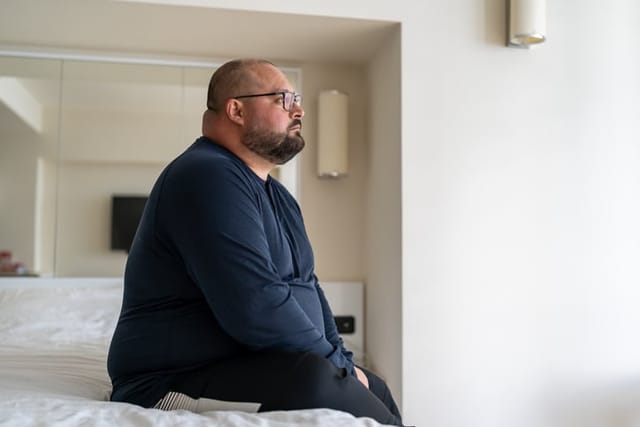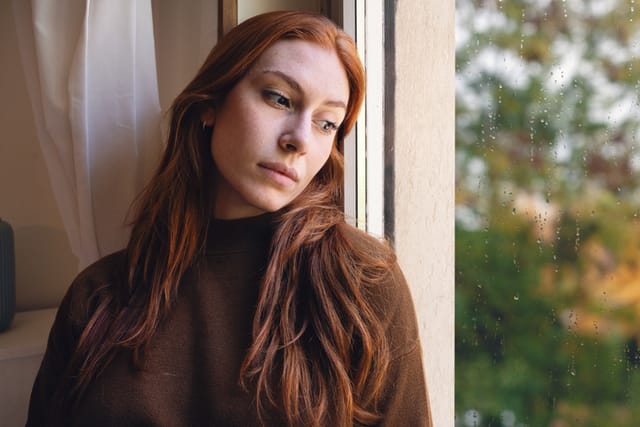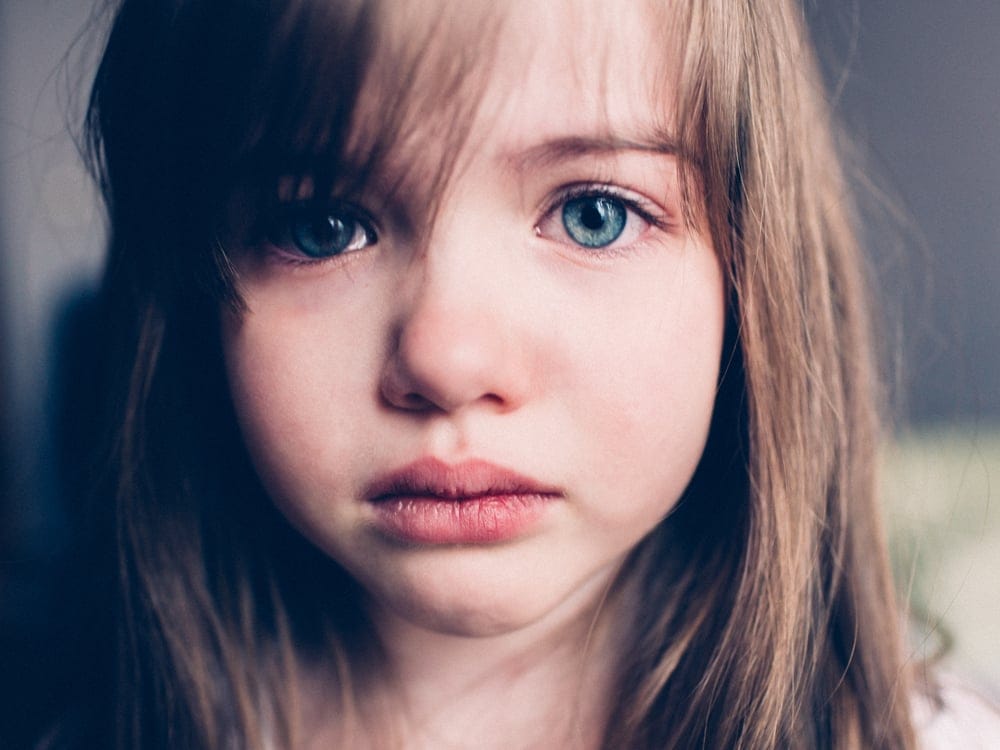Your formative years set the tone for how the rest of your life will pan out, so it’s safe to say they’re pretty important. If you had a difficult childhood, you might have already noticed that you’re struggling to navigate adulthood. While what happened to you isn’t your fault, it’s important to seek help so you can heal. Here are some ways an unhappy childhood may be impacting your adult relationships.
1. You Feel Lonely.

Many people who had a rough childhood feel lonely as adults, even if they’re surrounded by people. This could be because you don’t know how to connect with others or isolate yourself whenever you’re having a hard time.
2. You Act Out For Attention.

Craving attention is only human. However, some people who had unhappy childhoods, struggle to verbalize their needs. You might find yourself acting up if you feel people are too distant because you don’t know how to communicate your feelings.
3. You’re Terrified Of Abandonment.
If you felt rejected as a child or lost people who were important to you, as an adult, you could be petrified of abandonment. This can manifest as being clingy in relationships or needing constant reassurance that everything is going well. Unfortunately, the harder you try to hold onto people, the further you end up pushing them away.
4. You’re A People Pleaser.

People pleasers desperately want to be liked and can’t bear the thought of letting anyone down. If you felt like you had to earn love and affection as a child, you might now struggle to say no to people as an adult. Sadly, too many people are more than happy to take advantage of people pleasers.
5. You Don’t Like Yourself.
While you might have been made to feel like you’re unlovable as a child, that’s simply not true. Everyone has value. As an adult who had a tough childhood, you might have low self-esteem and have no idea how to start loving yourself. You might find yourself growing resentful of your friends with more confidence and can’t help but drop a snarky comment here or there to bring them down.
6. You Don’t Have A Secure Attachment Style.
Attachment theory is the belief that how we bond with people is influenced by the relationships we had with caregivers in our youth. So, people who had attentive, loving caregivers who met most of their needs, are more likely to feel secure in romantic relationships as an adult. Those who didn’t have their needs met can have ambivalent, avoidant-dismissive, or disorganized attachment styles. The good news is, that once you become aware of what your attachment style is, you can work on changing it.
7. You Can’t Cope With Conflict.
No one likes conflict, but people who had an unhappy childhood may be more distressed by it than others. This could be because disagreements bring back bad memories and leave you feeling hopeless.
8. You Surround Yourself With Messy People (Even Though You Hate It).
You might hate that you date or become friends with toxic people, but can’t seem to break the cycle. This is because, on a subconscious level, these people remind you of the people who caused your childhood trauma, so the chaos is comforting. You might also be subconsciously recreating traumatic moments in the hopes of having a different outcome.
9. You Don’t Know How To Resolve Issues.
 ©iStock/BraunS
©iStock/BraunS
You have no idea how to what to do after having a disagreement or argument with someone. If fights were brushed under the rug in your household and everyone started acting like nothing happened, you do the same now, much to the frustration of the people in your life.
10. You Try To Fix People.

Since you felt you had no control in your childhood, now that you have some agency as an adult, you might find yourself trying to fix people. On some level, you might feel like “fixing” someone who is emotionally unavailable will heal old wounds. Not to mention, you can’t think about your own problems if you’re preoccupied with someone else’s. You can’t save other people, you can only save yourself.
11. Peace Feels Wrong.
As mentioned earlier, if you had an unhappy childhood, you might find yourself drawn to messy people and situations. When things are going well or you’ve surrounded yourself with people who are secure, the feeling of peace is uncomfortable. Since you’re so used to chaos, you’re constantly waiting for things to go sour. Be careful not to self-sabotage, you deserve nice things.
12. You Don’t Think You Deserve Better.
If you find yourself in an unhealthy relationship, you struggle to leave because you don’t think you deserve to be treated with respect. It’s not your fault that you’re being treated poorly, but it’s time to consider coming up with an exit plan.
13. You Always Feel Like You’re In Trouble.
Even though you’re an adult now, you constantly feel like a child who is about to get scolded by a parent or teacher. Whenever you mess up, you brace yourself to be berated and feel an unbearable amount of shame. This can make maintaining adult relationships difficult as friends or a partner can feel like they can’t discuss issues in the relationship or set boundaries without you falling apart. While your feelings are valid, your loved ones could grow resentful if they feel like they have to comfort you because you’re upset that you upset them.
14. You Can’t Regulate Your Emotions.

Emotion regulation refers to how we can recognize, respond, and manage an emotional situation. People who can’t regulate their emotions, may notice they are impulsive, lose control when things go wrong, or have a difficult time understanding how they feel. While lots of adults struggle with emotional regulation, it’s particularly common with people who’ve experienced childhood trauma. It can be a real strain on your adult relationships when you shut down or lash out whenever things get a little tense.
15. You Get Triggered By Seemingly Small Things.
One of the hardest things about coping with childhood trauma is being triggered by things that seem completely random to other people. This makes going about your day-to-day life as an adult difficult as something can catch you off guard and leave you reeling. Thankfully, you can learn how to manage your triggers. When it comes to relationships, your loved ones might find themselves walking on eggshells or are unsure what to do when something they can’t understand upsets you.
16. You Can’t Let Go Of The Past.

While some people who had a difficult childhood, can’t remember it, other people remember things in excruciating detail. As an adult, you might find yourself ruminating on things that happened decades ago and can’t help but vent about it. Since you spend so much time living in the past, you barely notice the present. When it comes to relationships, your loved ones may struggle to hear the same stories over and over again. You deserve to have a space to let your feelings out but consider seeking help from a professional too.
17. You Don’t Have A Healthy Relationship With Money.

If one of the reasons you had an unhappy childhood was because of poverty or financial instability, you may have an unhealthy relationship with money. This might manifest as being as frugal as possible or being on the opposite end of the spectrum. Either way, when you’re living with a partner or housemates, your spending habits don’t just affect you anymore.
Enjoyed this piece? Give us a like and follow Bolde on MSN for more!












